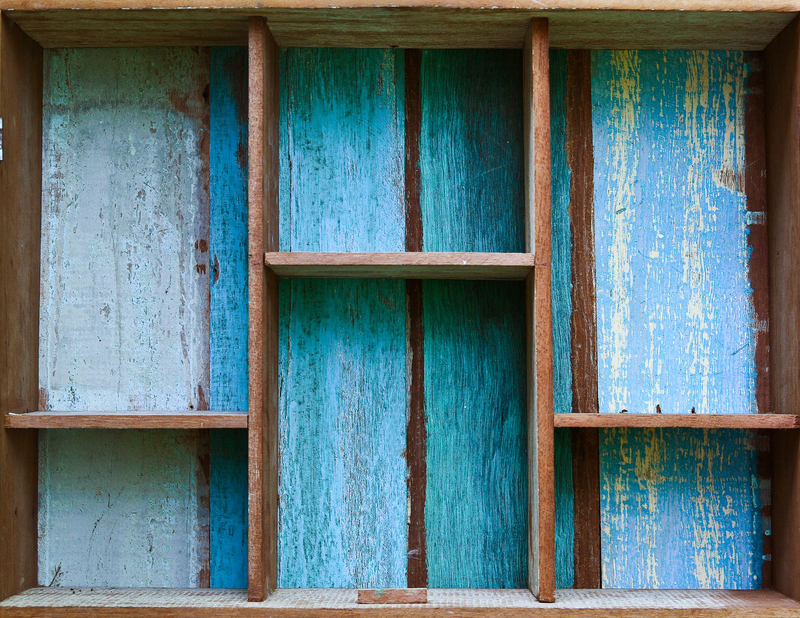Let Go of the Excess with Compassionate Clutter Removal and Hoarder Clean-Up
Living amidst clutter can feel overwhelming, isolating, and daunting. Many people struggle with excess belongings, whether it's due to sentimental value, difficult life circumstances, or a complex condition like hoarding disorder. This article sheds light on the importance of compassionate clutter removal and effective hoarder clean-up, offering practical strategies, emotional support tips, and expert advice to help you or your loved ones let go of the excess and embrace a more manageable, happier living environment.

Understanding Clutter and Its Emotional Impact
Clutter isn't simply a matter of untidy spaces. It's often rooted in emotional attachments, personal history, and sometimes, mental health challenges. The journey to a clutter-free life encompasses more than just physical removal--it requires sensitivity, understanding, and compassion.
What Is Clutter?
- Everyday Clutter: Piles of mail, magazines, or clothing accumulated through routines.
- Sentimental Clutter: Items kept for emotional reasons--gifts, memorabilia, or heirlooms.
- Hoarder Clutter: Possessions collected to an extreme, interfering with everyday living.
The Emotional Toll of Clutter
- Anxiety and stress from overwhelming surroundings.
- Feelings of guilt or shame about the state of living spaces.
- Social isolation due to embarrassment or fear of judgment.
- Decreased productivity and motivation.
It's crucial to approach clutter removal with empathy. For many, these items are tied to memories, comfort, or a sense of identity.
Compassionate Clutter Removal: The Human Approach
Traditional decluttering methods often overlook the emotional aspects. Compassionate clutter removal recognizes that this process is more than a cleaning task--it's an emotional journey.
Core Values of Compassionate Decluttering
- Non-judgment: Every person has a unique relationship with their possessions.
- Respect: Treat belongings and the individual's space with dignity.
- Active Listening: Understand why items matter before encouraging letting go.
- Support: Offer emotional backing and reassurance throughout the process.
Why Choose Compassionate Hoarder Clean-Up?
When excessive clutter escalates into hoarding, compassionate intervention becomes even more vital. Hoarding disorder is a recognized mental health issue, and insensitive approaches can cause harm. Compassionate hoarder clean-up services have specialists trained to reduce the emotional impact, promote trust, and create a safe decision-making environment.
Signs You May Need Clutter Removal or Hoarder Clean-Up Services
Recognizing when to seek help is a powerful step toward restoration and peace of mind. Here are common indications:
- Living spaces are unusable due to accumulated items.
- Difficulty discarding possessions, regardless of actual value.
- Mental health issues such as depression, anxiety, or stress linked to clutter.
- Health and safety risks--blocked exits, pest infestations, or fire hazards.
- Strained relationships because of environmental conditions.
Self-Help vs. Professional Help
- Self-Help: Suitable for minor clutter, with gradual goals and organizing tools.
- Professional Hoarder Clean-Up: Essential when conditions threaten health, safety, or well-being.
Step-by-Step Guide to Compassionate Clutter Removal
No two situations are alike, but these steps provide a structured, kind approach to clutter removal and hoarder clean-up:
1. Preparation and Planning
- Evaluate the size and nature of the clutter challenge.
- Set realistic timelines--don't rush emotional decisions.
- Assemble supportive friends, family, or professionals.
2. Building Emotional Readiness
- Talk through concerns and anxieties before starting.
- Identify "safe zones" or items that must be retained for comfort.
- Practice gentle encouragement rather than forceful demands.
3. Sorting and Decluttering
- Begin with less sentimental areas (e.g., expired foods, broken items).
- Sort objects into "Keep," "Donate," "Sell," and "Discard" piles.
- Respect the decision-making process--some days will be easier than others.
4. Cleaning and Restoring Spaces
- Deep clean after decluttering to restore hygiene and comfort.
- Repair or maintain household items and infrastructure as needed.
- Organize remaining possessions in accessible, logical ways.
5. Maintaining Progress
- Create simple routines for upkeep--daily, weekly, or monthly checks.
- Consider therapy or support groups for hoarding disorder survivors.
- Celebrate milestones and encourage ongoing compassionate support.
Benefits of Compassionate Hoarder Clean-Up
Engaging compassionate hoarder clean-up solutions delivers more than a clean house. It restores dignity, health, and hope.
- Healthier Living: Eliminates mold, dust, and pest hazards.
- Improved Mental Well-being: Reduces anxiety and depression associated with living in chaos.
- Renewed Relationships: Enables social interactions previously prevented by embarrassment.
- Empowerment: Individuals reclaim autonomy over their environment and decisions.
- Long-Term Solutions: Professionals often provide aftercare support and resources.
Is Compassionate Clutter Removal Right for You?
If you or a loved one are struggling with excess belongings and emotional difficulty discarding them, reaching out for compassionate clutter removal may be the game-changer. This approach ensures dignity remains intact and promotes both environmental and emotional healing.
Best Practices for Staying Clutter-Free After a Clean-Up
Maintaining a clutter-free environment requires sustained effort and self-compassion. Use these strategies for ongoing success:
- Adopt the "One In, One Out" Rule: For every new item brought home, remove one existing item.
- Monthly Donations: Make it a habit to fill a donation bag with items you no longer use.
- Mindful Purchasing: Consider necessity and purpose before acquiring new goods.
- Set Organizational Systems: Labels, baskets, and checklists can help maintain order.
- Seek Support: Keep in touch with support groups or professionals if necessary.
Addressing Hoarding Disorder with Empathy and Care
Hoarding disorder affects an estimated 2-6% of the population. Recovery and improvement are possible, but these require an understanding approach. If you notice these signs, compassionate hoarder clean-up combined with therapy can help:
- Persistent difficulty parting with possessions, no matter their value.
- Accumulation that clogs living spaces and impairs function.
- Distress or problems in functioning related to the hoarding behavior.
How Does Compassion Aid Recovery?
- Builds Trust: People are more open to change when they feel respected and heard.
- Reduces Shame: Kindness alleviates embarrassment and fear of stigma.
- Encourages Sustainable Habits: Emotional resilience supports long-term organization.

Why Hire Professional Compassionate Clutter Removal Services?
While self-help is admirable, complicated or severe situations call for experts. Professional compassionate clutter removal and hoarding clean-up services offer:
- Specialized Training: Staff are skilled in both physical clean-up and empathetic communication.
- Safety Protocols: Handling hazardous waste, sharp objects, pests, and allergens.
- Tailored Plans: No two clean-ups are alike--customized solutions ensure comfort and success.
- Aftercare: Many services provide follow-ups and connections to mental health professionals.
Finding the Right Service
Look for companies with positive reviews, mental health awareness, confidentiality policies, and clear pricing. Consult with multiple providers, and involve the affected person in decision-making every step of the way.
Conclusion: Free Yourself and Loved Ones from Clutter, with Compassion
Letting go of excess through compassionate clutter removal and hoarder clean-up isn't just about tidying spaces--it's about renewals, emotional well-being, and reclaiming joy. Whether you are facing minor mess or tackling hoarding disorder, always approach the process with empathy, patience, and respect. Remember, you're not alone, and compassionate, professional support is always available.
Let go of what no longer serves you, honor your journey with kindness, and step into a brighter, clutter-free future.
